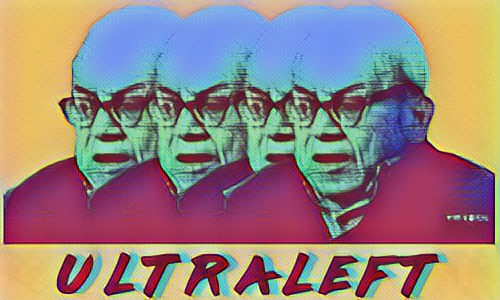Ecologists Embedding
The obsolete technocratic philosophy is mechanistic. It conceptualizes nature as a resource to be controlled fully for human ends and it threatens drastically to alter the integrity of the planet’s ecosystems. In contrast, the organic, person-planetary paradigm conceptualizes intrinsic value on all beings. The ecology movement gives priority to community and ecosystem integrity and helps to guide the design and applications of technology according to principles which follow from ecological understanding. Ecologists will need to come to embody the ecological paradigm and co-create ecological councils that represent interrelated communities.
The Problems
Decisions are made on the political and narrow economic grounds, rather than on principles that are environmentally sound and economically advantageous in the long term. Modern technologies have given us much in the way of comfort and enjoyment and they have made possible the development of human skills on a scale never before possible. But they are also perceived by many as Frankenstein’s monsters loose among us. In films. Novels, art, poetry and even within the scientific establishment there are voices of disquiet fearing a human society controlled and imprisoned by its own technological creations. There is much discussion of alienation and anomie, the loss of community, the impersonal character of machine-like bureaucracies.
Many analyses of the ecological crisis have emphasized an inseparability of ourselves and our environment. The deep ecology movement, however, recognizes the need for a fundamental shift to new paradigms of human environmental relationships in terms of fields and processes. The deep ecology movement emphasizes in principle, biospheric egalitarianism and the intrinsic value of all life. It aims for the creation of systems that are diverse, symbiotic, and compatible with natural systems and for the establishment of an anticlass attitude which is consistent with biospheric egalitarianism. Deep ecological knowledge forces us to recognize that ecosystems are in some cases so complex that they will probably never be completely understood by humans. Thus deep ecologists humbly recognize human ignorance, and the need for cautious development of technology. They seek to avoid fragmentation and complication of human life that results from too great an emphasis on technological control.
In a loose sense dominant paradigms are forms of mythic understanding. The technocratic paradigm has a powerful mechanistic image from which a large number of other worldviews develop. However when pursued to its extremes, it seriously undermines the vigor of other aspects of human life, such as intersubjectivitiy. The paradigm of the deep ecologists wll be more appropriate to the unity and interrelatedness of the Earth, with its limitations and its delicately balanced ecosystems. The emerging ecological paradigm Alan Drengson, calls the person-planetary; the opposing paradigm the technocratic.
Organic paradigms have characterized philosophies in past cultures. This means that the current spiral of development is in some ways open to an infusion of elements of older wisdom. The emerging organic paradigm will differ from older organic paradigms, for detailed knowledge of ecosystem processes, cells, matter-energy, planetary processes and the like inform the emerging paradigm.
The Obsolete Technocratic Paradigm
Technocracy here refers to the systematic application of technology to all levels of human activity, including governmental and economic policies which have growth as their central aim. Such growth in the contemporary West is often promoted by means of policies which favor complex, high technologies. The scale involved in applying new technologies dictates a need for government and corporate planning; thus only specialists can write policy. Technocracy must then rest on ends beyond its own capacity to understand or justify. Carried to its logical end it seeks to turn the world into a controlled artifact. Nature is only a resource to be processed. This process in turn becomes self-perpetuating and self-justifying; and in time it must also bring human social activities under technological control. Thus the Earth comes to be seen as a machine, devoid of consciousness but for humans.
The technocratic paradigm encourages the development of centralization, of capital intensive and labor-poor industry. It strives to apply technology to all human life and creates uniformity in product and culture. It fragments human life and finally lacks any values to sustain it. As it becomes more centralized and complicated, the concept of persons is impoverished. Nature is understood, not as living subject, but as object and machine.
The Ecological Paradigm
We will now develop an organic person planetary paradigm to see how it might better integrate these insights with our contemporary knowledge of ecology, humans, and community. Person-planetary philosophy, with Kant, regards community as primary. Through its paradigm, observer and observed are united in reciprocal processes of interresponsiveness. The boundaries of community extend to include the other beings of our home places. We affect and are affected this broader community of life. Our societies are living processes within it.
The ecological paradigm attempts to locate the constraints on human activities in the principles of ecology and the reality of particular ecosystems. These reveal that ecosystems are more life organisms than machines. The organic paradigm stresses the interrelatedness of the biosphere. The world must be thought of as intersecting fields of processes, rather than as separate individuals. An ecosystem is like a living body. We cannot understand the cell in isolation, but only in relation to higher levels of integration.
There are not only human values at stake, but also the values of all other organisms. Biospheric egalitarianism and the principles of ecological interconnection help us to realize that no large- scale impacts on ecosystems will be without their effects on human life. Since social processes are interrelated as well, ecological principles must be introduced at the inception. Not at the conclusion of design. The ecological paradigm would reclaim value by placing it once more at the center of life, and by broadening our conception of human experience consonant with this.
The features of diversity, flexibility, adaptation, symbiosis, accommodation, interconnectedness all suggest a process of design for human technologies that deeply understands these processes, an understanding that is enriched by the perception of both intrinsic and instrumental values. The ecological paradigm helps us to understand the mutual interpenetration of living communities and their ecosystems. The interconnections are evident on several levels of integration. From energy-flows through ecosystems, the pyramid structure of living organisms in terms of population, the networks of food chains, the relationships of neighborhoods and territory, the interpenetration of reciprocal awareness in the active responses of sentient beings, the consciously shared ends and purposes in human communities, all of these represent levels of integrated organization within the total ecosphere. In human communities persons live within rich cultural and ideational matrix where their feelings are interwoven with those of others. The technocratic paradigm begins its control over nature with control over our culturally conditioned minds.
The ecological paradigm enables us to look at the world through the eyes of ecological processes and relationships. Afterwards, we begin to see the need for the way of designing in our processes so that they are compatible with the principles of ecology and consistent with a respect for living beings in ecosystems contexts. In such eyes, art and science meet. In emphasizing intrinsic worth and egalitarianism, the person-planetary paradigm helps us to see the possibility of designing collective activities that from their very constipation are ecosphercially sound, capable of coevolving with other life forms. Thus the organic paradigm leads us from individual actions to an appreciation for persons and beings in communal contexts. These contexts lead to the processes that interconnect communities globally. From the person, human and nonhuman, and the community, we are led finally to see the planet as a whole. Seeing the planet as a living being reinforces our understanding of the interconnectedness of biospheric processes.
By doing our best as whole persons we can realize that the natural world will support us indefinitely, if we but adjust our activities to it. We can also realize how we can open to a centered awareness that is free of conceptual constraints. This openness in turn can lead to a realization of our essential being and inherent worth as it is in the world as a whole. Our deep ecological paradigm sees human life at home once more in a harmonious world. We are not isolated and alone. We are citizens of the world, members of the larger communities of life. May councils of all beings flourish in this paradigm perspective.




Comments
Post a Comment